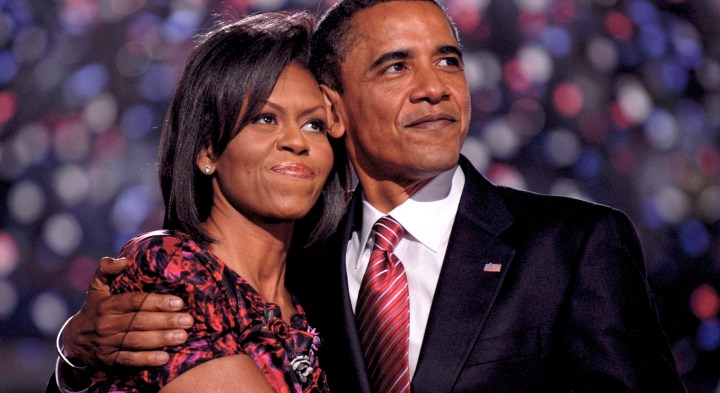OP-ED
Reflecting on A More Perfect Union

Eleven years ago, Barack Obama gave his ‘A More Perfect Union’ speech at the National Constitution Centre in Philadelphia, Pennsylvania. It was delivered in response to the racialisation of his presidential campaign in 2008. With an increasingly polarised political landscape in the United States, it’s worth revisiting this seminal speech about race and nationhood.
Despite how much the US has changed over the past 11 years, this speech offers relevant insights. On the one hand, we’re reminded about the realities, but also the limits, of politics through the prism of race. On the other hand, this speech affirms the dynamism of a nation: That despite turbulent histories, nations are capable of — and can and do — change.
Obama was prompted to give this speech after a recording of a sermon from Chicago-based pastor Reverend Jeremiah Wright was released. In this recording, given soon after the terrorist attacks on 11 September 2001, Wright made statements about the racial history of the US. In one passage, Wright exclaimed:
“When it came to treating her citizens of African descent fairly, America failed. She put them in chains, the government put them on slave quarters, put them on auction blocks, put them in the cotton fields, put them in inferior schools, put them in substandard housing, put them in scientific experiments, put them in the lowest-paying jobs, put them outside the equal protection of the law, kept them out of their racial bastions of higher education and locked them into positions of hopelessness and helplessness.
“The government gives them the drugs, builds bigger prisons, passes a three-strike law and then wants us to sing ‘God Bless America’. No, no, no, not God Bless America. God Damn America — that’s in the Bible — for killing innocent people. God damn America, for treating our citizens as less than human. God damn America, as long as she tries to act like she is God, and she is supreme.”
The comments that evoked the most ire, with both Democrats and Republicans, were “God damn America”. Many reactions narrowly focused on these words without honestly reflecting on the wider target Wright was aiming at: The contribution of racism and slavery to the formation of the US.
The scandal created by Wright’s comments added to doubts about Obama’s candidacy, many of them racially tinged. As a politician in Illinois, Obama and his family were close to Wright, which caused many, like Hillary Clinton, to question his “electability”.
Obama began the speech with his own family story, which acts as a challenge to those who view the history of race in the country through a singular lens:
“I am the son of a black from Kenya and a white woman from Kansas. I was raised with the help of a white grandfather who survived a Depression to serve in Patton’s Army during World War II and a white grandmother who worked on a bomber assembly line at Fort Leavenworth […] I am married to a black American who carries within her the blood of slaves and slaveowners — an inheritance we pass on to our two precious daughters […] and for as long as I live, I will never forget that in no other country on Earth is my story even possible.”
Given the hopeful tone of his opening, he ironically admits it hasn’t made him the most conventional — meaning electable — candidate. Despite this, he recognises that the significance of this story exemplifies the idea that a nation “is more than the sum of its parts — that out of many, we are truly one”.
While these appeals to rainbow-esque sentiments pepper the speech, Obama didn’t downplay his race by claiming it wasn’t an issue. He believed it was representative of a larger issue that needed to be addressed. Avoiding it, he thought, would amplify “the negative to the point that it distorts reality”.
Indeed, the strong reactions to Wright’s sermon indicate that the complexities of the racial history of the US haven’t been worked through — what Obama described as “a part of our union that we have not yet made perfect”. To further illustrate this point, Obama referred to pieces of Wright’s sermon that were overlooked or ignored.
He reminded everyone that segregated schools “are inferior schools”, many of which remain so; that legalised discrimination, such as preventing black people, “often through violence”, from home ownership “meant that black families could not amass any meaningful wealth”; and that a lack of economic opportunity “contributed to the erosion of black families”, which Obama goes so far as to claim is “a problem that welfare policies for many years may have worsened”.
“For all those who scratched and clawed their way to get a piece of the American Dream,” said Obama, “there were many who didn’t make it — those who were ultimately defeated, in one way or another, by discrimination.”
Overlooking this history means ignoring the realities of race and the way it shapes people’s experiences — and forgoing any opportunity at achieving a perfect union.
According to Obama, the pathway to a more perfect union, on the one hand, requires the white community to acknowledge “that what ails the African-American community does not just exist in the minds of black people; that the legacy of discrimination — and current incidents of discrimination, while less overt than in the past — are real and must be addressed.”
He goes further than asking the white community to simply pay lip-service, stating that “deeds,” such as “investing in our schools and our communities; by enforcing civil rights laws and ensuring fairness in our criminal justice system; by providing this generation with ladders of opportunity that were unavailable to previous generations” are ways to ultimately move forward.
On the other hand, Obama explained that the pathway to a more perfect union also requires the African-American community to embrace “the burdens of our past without becoming victims of the present” and “binding our particular grievances — for better health care and better schools and better jobs — to the larger aspirations of all Americans”.
What distinguishes Obama’s position on the pathway to a more perfect union is the way he mirrors the challenges of talking about race with the challenges of talking about broader issues that affect everyone. If all communities came together, then we could “talk about how the lines in the emergency room are filled with whites and blacks and Hispanics who do not have health care […] the shuttered mills that once provided a decent life for men and women of every race”.
With all of this in mind, however, Obama equally stressed the myopia of “the temptation to view my candidacy through a purely racial lens”. For example, he spoke about how commentators described him as both “too black” or not “black enough”, implying the rigidity with which racial identities are policed didn’t capture the nature of his campaign.
By the time of the speech was given, his campaign had already “won commanding victories in states with some of the whitest populations in the country”, like South Carolina, where the Confederate flag still flew in 2008, and in Iowa, a state that tipped heavily in the favour of Donald Trump eight years later. These victories attest to the limits of viewing politics through the prism of race, a marker of identity which doesn’t determine how people think or act.
Obama’s ideas about the limits of politics through the prism of race extend to his ideas about nationhood and the dynamics of a nation. When reflecting on the errors Wright made in his sermon, Obama explained the “profound mistake” he made was:
“…that he spoke as if [American] society is static; as if no progress has been made; as if this country — a country that has made it possible for one of [Wright’s] own members to run for the highest office in the land and build a coalition of white and black, Latino and Asian, rich and poor, young and old — is still irrevocably bound to a tragic past”.
What stands out from Obama’s criticism is that while the country may have a difficult past that shapes the present, this past doesn’t dictate the future. A country as complex and expansive as the US is equally dynamic enough to not remain static — Obama’s election and re-election affirm this idea.
This insight is significant, because it believes people aren’t bound to the past at the expense of the future. If we are to ever achieve something resembling a perfect union, then embracing this belief is crucial, because the alternative means, as Obama presciently explained toward the end of his speech, “in the next election, we’ll be talking about some other distraction. And then another one. And then another one. And nothing will change”.
Looking back at Obama’s “A More Perfect Union” speech, we’re reminded that the relationship between race and nationhood isn’t simply black and white. While Obama’s vision for a more perfect union couldn’t have been realised during — or as simply as a result of — his presidency, his ideas about how to achieve it remain relevant and worth revisiting. DM



















